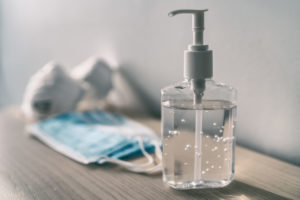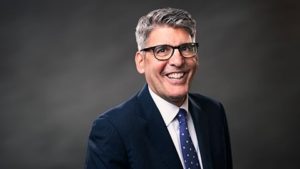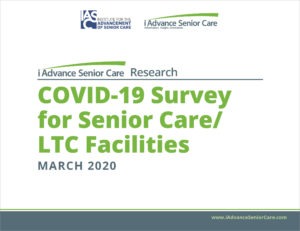View From the Trenches: Interview with Dr. Arif Nazir
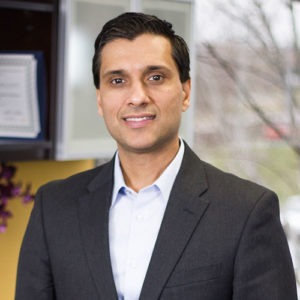
Dr. Arif Nazir
Dr. Arif Nazir is a practicing geriatrician and currently serves the roles of Chief Medical Officer for Signature HealthCARE. As a healthcare leader, researcher and an implementation champion, he continues to focus his efforts on finding practical solutions for solving care coordination gaps in care and also on enhancing the engagement of physician leaders in the post-acute setting.
Dr. Nazir is the Immediate Past President for AMDA, the Society of Post-Acute and Long-Term Care Medicine. He also is the founding member and co-chair of the Society’s Innovation Council. Dr. Nazir has received many professional awards, most notably the Louisville Business First’s 20 People to Know: Healthcare Award in 2018; Chief Innovator Award from Indiana Medical Directors Association in 2018; and the Indiana Hulman Health Achievement Award for Public Health in 2015. He has also published his research in several peer-reviewed journals and frequently presents at regional and national platforms on geriatric care issues.
AH: You are the Chief Medical Officer (CMO) of a major company that provides a host of post-acute and long-term care services, Signature HealthCARE. Can you give our readers a brief overview of that company?
AN: Signature HealthCARE is one of the largest post-acute long-term care organizations in the country with more than 110 facilities across 10 different states. We provide care to about 9,500 lives on any given day. Signature is known for its innovative spirit and person-centered strategies.
AH: The COVID-19 pandemic caught the entire health care industry by surprise. Can you describe some of the ways Signature HealthCARE responded to the many challenges?
AN: Like many other organizations, we assured that every decision is made based on the best known evidence and with only one key focus: how to protect our residents, patients and staff. Even before the pandemic hit us, we had compiled a team on infection control experts that included a nurse as Director of Infection control, our Chief Nursing Officer, an infectious disease expert and other key nursing leaders besides me.
This team has been an integral part to every policy and clinical decision that has been made. This interprofessional and evidence-based approach guidance to the field has been the reason that even though we have had a number of COVID-19 cases, our recovery rate has been phenomenal with more than 85% of our residents and staff recovered so far. Also, having a highly trained team of in-house nurse practitioners also helped provide a concerted response to the pandemic. Our company embraced facility-wide testing strategies from the beginning, even long before it was embraced officially by state and government agencies, and we have been working closely with the CDC. All these strategies have been very effective in providing a solid response to the pandemic.
AH: CMS recently announced the formation of a national, Independent Coronavirus Commission on Safety and Quality in Nursing Homes. One of Signature’s employees, Camille Rochelle Jordan, senior vice president of clinical operations and innovation, was appointed to that commission which should make Signature very proud. Can you comment about that?
AN: One of the key reasons that I joined Signature HealthCARE was because I was familiar with the Signature’s person-centered approaches to patient care. Signature CEO, Joe Steier, who has had personal experiences in the nursing home care-delivery model (with his parents and recently his brother passing away peacefully in a Signature facility), inspires the leaders to continue to educate, innovate and improve themselves because we need to bring the sector into the future.
As a result, the company has many phenomenal leaders with amazing insights into the issues that face us in this setting and proposed solutions. Camille Jordan, who is a nurse practitioner by training, is just one of the extraordinary leaders we have who carries priceless experience in real world nursing home operations and clinical care. I can’t think of a better leader to be part of the commission.
AH: Can you describe the BASE10 program and how that helps Signature HealthCARE deal with the changing requirements and guidance from the various states regarding COVID-19?
AN: Early in the pandemic, we knew that frequent testing of our residents and staff would be critical to a meaningful response to the virus. Given our innovative approaches to COVID-19, we again started to strategize on how we would approach this issue of frequent testing.
We knew that the exact test we use (e.g. PCR versus antigen versus antibody) would change over time based on the available science and federal mandates, but we also needed to provide digital support to our operators so that they don’t have to rely on a paper-and-pen approach to tracking test results.
Base10 Genetics was the right partner for us to tailor a digitally automated solution so that we could help guide (based on evidence and state/ federal mandates) the frontline teams towards choosing the right test and organized testing planning and tracking of results. The Base10 platform now provides a one-stop shop for frontline teams to order tests, get the results logged digitally and then to plan future testing based on state and federal mandates.
AH: There are currently different types of tests for COVID-19 such as the polymerase chain reaction (PCR) test and the antigen tests? Do you have an opinion regarding which tests are preferable for residents and staff?
AN: This is an evolving science for sure. Given what is known today, I do believe that PCR tests may have the best accuracy. Unfortunately, PCR tests may not be a very effective strategy if the results are delayed by more than 48 hours. Thus, having other options such as POC antigen testing becomes important.
We follow the CDC guidelines and algorithms on how and when we employ the testing strategies. It would be great if there were uniformity between federal and individual state guidelines on how and when to use these tests. You can imagine that operating in 10 different states, this is challenging.
AH: In terms of therapeutics, do you feel that reliable RCTs support the use of drugs like corticosteroids in treating COVID-19?
AN: A couple weeks ago there was a series of three trials and a meta-analysis published on the effectiveness of dexamethasone in the management of COVID-19 in the Journal of American Medical Association (JAMA). I think we have enough evidence to consider dexamethasone as a standard of care treatment for moderate to severe COVID-19 illness.
AH: As Chief Medical Officer of a large multi-state company that cares for thousands of residents, what is a typical day like for you, if there even is a typical day?
AN: That’s an interesting question. I am blessed to have an amazing team of operational and clinical peers our home office and the frontlines. The frontlines do most of the hard work. My important contribution is to make sure that they have the best available information at their disposal. In that regard, I spend a lot of time reviewing literature, understanding new guidelines and recommendations, and then assuring that the information is disseminated effectively not only to clinical teams but also to medical directors, attending physicians and other practitioners.
Through AMDA, the Society of Post-Acute and Long-Term Care Medicine, and my physician network, I try my best to learn and share best practices in COVID-19 management. Besides being engaged in COVID-19 related issues, I also invest some time every day on many important issues including best practices in care delivery, keeping physicians engaged in high quality care practices, mentoring of our nurse practitioners and helping the company in various ongoing and upcoming strategic indicatives. Even though this is a stressful time, I don’t think I have ever had the opportunity to learn and contribute more.
AH: Has it been challenging to motivate the 100-plus medical directors whom you oversee?
AN: Engaging physicians and motivating them to provide higher quality of care is one of my favorite parts of the role. This is an area where we have many gaps in our healthcare system. AMDA has done an amazing job in setting the expectations and education/ training for medical directors but the issue is how does one operationalize the concepts.
At Signature HealthCARE, we have fully formalized physician engagement through a strategic approach that includes setting expectations, onboarding programs, ongoing training and communications, and finally providing outcomes and dashboards to the medical directors. We are the first organization to create and implement a digital app to engage medical directors.
The CareAscend App is now being used by many other organizations as a quality assurance tool to help set medical director expectations, log their administrative hours and to share their metrics. Soon the App will be used to promote medical director and director of nursing mutual education and QAPI efforts.
AH: You are a past president of AMDA, the Society of Post-Acute and Long-Term Care Medicine. How has AMDA helped the post-acute and long-term care community especially with regards to the COVID-19 pandemic?
AN: I could not be prouder of the role this organization has played for a robust and multifaceted response to COVID-19. The Society has brought together interprofessional experts to put together guidelines, best practices, contribute to policy-making both at state and federal level and much more.
AMDA’s COVID 19 resource page is one of my favorite resources for accurate and meaningful information for key issues pertaining to COVID-19 management in post-acute setting. Recently, AMDA board members participated in a virtual Hill Day to meet with Congress members and Senators to advocate for policies on behalf of nursing home patients and staff.
AH: What obstacles do you see, if any, that impact on Signature HealthCARE’s ability to carry out its mission?
AN: Signature HealthCARE leadership is more motivated than ever to accomplish the mission to “revolutionize” healthcare. The pandemic has only deepened this motivation. The biggest barriers I see right now that we face are the same that are faced by other operators: funding and staffing for us to be able to sustain the mandates around PPE and testing and to assure quality of care during this pandemic.
The setting was always underfunded by the government, and staffing always has had its challenges, but the pandemic has added many other financial burdens related to PPE and testing costs. Workforce issues, many of which relate to additional pressures in the facilities with no visitors (and increased resident and family behaviors to handle) and pressures at home with schools shutting down, spouses losing jobs, etc. – all continue to be another barrier. Having said that, I am very confident that with our innovative approaches to many of the healthcare problems, Signature is very close to succeeding in its mission to transform how care is delivered in this setting.
AH: How has using technologies, such as telehealth helped to promote resident care during the pandemic?
AN: Signature HealthCARE had implemented Telehealth technologies in all of its centers before the pandemic hit and the availability of the platform has been a great strength during the pandemic. At Signature, we believe that physician and practitioner physical presence is a key to support the team and to do the best possible assessments but in situations where infection control best practices demand the use of remote technologies, we have been able to provide care using Telehealth. We’ve also been able to use Telehealth for resident / family visits, and as an additional way we can include families in resident care since they cannot be present physically.
AH: Has Signature utilized various technologies to aide resident communication?
AN: Signature HealthCARE staff have gone to all lengths to assure that residents are connected with their family members. This includes our Telehealth platform called YourDoc2U, as mentioned, Facetime, iPads, and similar options.
AH: How have Signature HealthCARE facilities been able to foster and maintain a positive attitude and morale among its staff at such a challenging time?
AN: Signature HealthCARE is a unique organization that has included spirituality as one of its three pillars. As a result, the emotional well-being of our staff has always been a priority. Over the last few months, led by our CEO, the organization has taken many key steps to make sure that staff not only have the physical but emotional support during this tough time.
From “hero pay” for staff working in COVID-19 units, in-facility pantries to provide free groceries, personal visits from home office leaders and staff to facilities bringing PPE supplies, snacks and drinks for staff, hand-written letters and notes, staff recognition announcements, working with local community leaders to promote community parades and support for our staff, have been some of the many approaches. Also, as certified nurse aides, many Signature leaders have picked up shifts in our facilities to provide side by side support to our frontline staff members.
AH: What are some of the operational issues that skilled nursing facilities face as they confront the COVID-19 pandemic?
AN: The key challenges faced by operational leaders relate to PPE and testing supplies, we want the staff and the residents to be as safe as possible during the pandemic. Also, increased or differing conduct from residents and families related to the inability to visit in person and touch or hug – this of course, comes with following and adjusting to dozens of ever-changing state and federal mandates, sometimes weekly, that have been very hard. Finally, workforce issues, especially with some staff wanting or even having to leave the industry because of COVID-19, it is tough to keep a consistent workforce.
AH: Are there “lessons learned” from the coronavirus pandemic and what could we do to be better prepared for future disasters that may impact on skilled nursing facilities?
AN: In our recent publication in JAMDA, we made clear recommendations on how to address the pandemic and also broader issues of healthcare in the post-acute setting. We recommended a collaborative mindset, smart policy-making with input from geriatric experts, a proactive, rather than reactive mindset and supportive (as opposed to punitive) approaches from the regulators and surveyors.
We also need to reflect on the glaring healthcare disparities that have become so visible and the rampant ageism that needs to be addressed, besides the funding issues of this setting. Without attending these issues, we can’t plan for a better and a different outcome to a future crisis of this nature.
AH: In June 2020, CMS announced its “enhanced enforcement” policy whereby it stepped up the civil money penalties especially with respect to infection control-related deficiencies. Everyone agrees that deficiencies should be corrected as soon as possible and that facilities should be held accountable where one or more of Medicare’s Requirements of Participation have not been met. Do you feel that higher and/or more frequent CMPs are the most effective way to improve resident outcomes?
AN: The punitive approaches to enhance quality of care outcomes have not worked in the past. Providing high quality of care requires well trained teams that are adequately resourced and are motivated. Stick and carrot systems only end up stripping individuals of the internal motivation that attracts them to this setting of care.
The pandemic has created an urgency that we review and respond to the lack of training and resources we have in the post-acute care setting. Approaches that assign individual blame and deepen financial penalties will not work. They will only drive away motivated and committed healthcare workers from this setting. We need to acknowledge the hard work of our frontline teams (both clinical and operational) and when the outcomes are not where we want them to be, we need to sincerely try to understand and address the reasons.
AH: What have you done during the pandemic that has brought you the most satisfaction?
AN: Being part of one of the most interprofessional and skilled teams has been a true pleasure. Also, it has been very rewarding to have excellent rates of recovery from COVID-19. I am also excited to see the benefits of all the innovative approaches we have implemented including our digital solution to testing and implementing clinical care paths to address COVID-19 and other chronic illnesses.
AH: Given the incredibly long hours that you work and the many roles and responsibilities you have, what helps to keep you energized and able to be so effective?
AN: Again, I will take the opportunity to highlight the role of many other leaders and frontline staff who have worked harder than anyone and helped me to be energized. Their passion and strive for doing their best work have kept me motivated and inspired. Moreover, this environment has convinced us all that status quo will not work in many aspects of healthcare and this is the time to innovate and think differently. I believe that post-acute health systems are at the verge of historic and much needed change and to be able to be a part of this change is energizing.
AH: You are a very positive person. How have you managed to help other members of the Signature HealthCARE care team to stay positive?
AN: Actually, it’s the other way around. I am surrounded by excellent leaders who exemplify positivity and optimism—traits that are a must for us to succeed. Starting from our CEO, and then from innumerable frontline leaders, I get to read inspiring messages and real stories of heroism and success, and that keeps me convinced of the light at the end of the tunnel. I am also blessed to have an amazing national network of professional friends in this setting, from chief nursing officers and chief medical officers to many operational leaders. I know that we are all in this together and that thought keeps me hopeful and positive.
AH: What is the most rewarding aspect of being a physician and a Chief Medical Officer?
AN: Though, I surely miss my previous role as a frontline clinician, I would not have asked for a better role to be in– particularly during this pandemic.
We are in a historic phase of healthcare evolution in the US. I have never seen the healthcare systems more ready for innovation and change. This is the time for healthcare leaders to be bold and to take much needed steps to finally create healthcare delivery models that work for the patients.
Particularly, in the post-acute care side, there is so much room for us to improve on. From frontline clinical care models to how physician leaders are engaged, all needs to be upgraded. At Signature HealthCARE, we are addressing all aspects of care and we are seeing the benefits of our approaches. Seeing the care to improve and team to be more engaged is the most rewarding feeling. I call this the “how well do you sleep at night” test and based on that I have never been more satisfied in my career.
AH: These are perhaps the most challenging times for skilled nursing facilities. Do you have any advice for the members of the post-acute and long-term care health team as they continue to heroically provide care to our nation’s most vulnerable segment of the population?
AN: As humans we have conquered bigger problems in the past and I have no doubts, we will overcome this one, too. So, we need to stay positive and hopeful. Though, sometimes it’s easy to get pessimistic and blame others for unfortunate outcomes, I would advise for everyone to stay away from blame game, and rather reflect on how we can personally improve on what’s under our control. A lot relies on healthcare leaders. We must be positive, provide inspiration and do all we can do to take care of our frontline team members who are providing heroic services at the frontline.
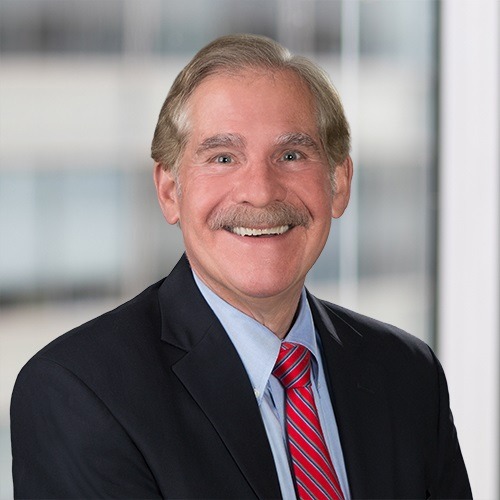
Alan C. Horowitz, Esq., is a partner at Arnall Golden Gregory LLP, where he focuses his legal practice on regulatory compliance for skilled nursing homes, hospices and home health agencies and manages cases where the Centers for Medicare and Medicaid Services (CMS) has imposed an enforcement action. He is a former assistant regional counsel Office of the General Counsel, U.S. Department of Health and Human Services. As counsel to CMS, he was involved with hundreds of enforcement actions and successfully handled appeals before administrative law judges, the HHS Departmental Appeal Board and in federal court. He also has clinical healthcare experience as a registered respiratory therapist and registered nurse. He can be reached at alan.horowitz@agg.com.
Related Articles
Topics: Administration , Alan C. Horowitz , Departments , Executive Leadership , Facility management , Featured Articles , Infection control , Medicare/Medicaid , Regulatory Compliance , Resident Care , Staffing






